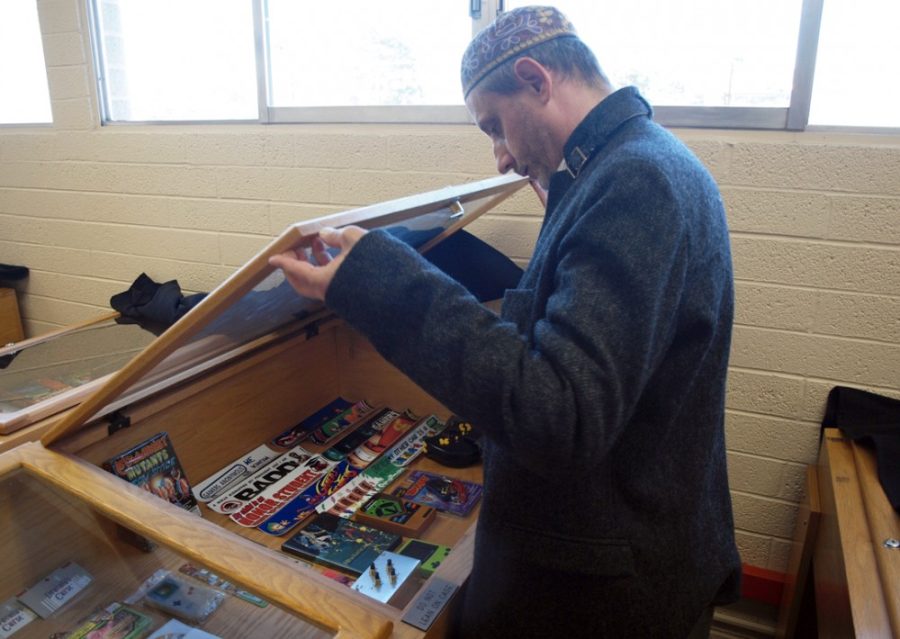If long nights of staring at a bright television in the darkness as you attempt to beat the boss in the final fight of a game still lingers in your memory, take a trip to a 40-year progression of the gaming world tucked away in an archive on the UA campus.
Co-founded in 1999 by Ken McAllister and Judd Ruggill, the Learning Games Initiative Research Archive boasts a whopping number of over 12,000 games with a 100-plus count of game systems currently housed in its archives.
Ruggill and McAllister met by chance when Ruggill was a graduate student at the UA at the same time when McAllister was a friend’s dissertation adviser at the UA department of English. After a while, the two realized they both shared a love for games.
“Most [games] are physical copies,” McAllister said. He said that the copies are available to use and rent for those with research interests. Not all archives like this are open for public access; there are some that are private or have limited access.
Along with games and consoles, the archive also has research articles, publications and other game-related items. A recent addition to the archive is English professor Ander Monson’s new book, “A Letter to a Future Lover: Marginalia, Errata, Secrets, Inscriptions and Other Ephemera Found in Libraries,” which features some mentions of Monson experience in the archive.
“The amount of things that are game-related are fascinating to me,” said Ruggill, now a professor of communications at ASU.
When one has a job that works with games, one would think that there would be some down time to play said games. However, McAllister said that he spends more time working on research interests than playing.
“I did [finish] playing ‘Destiny’ a while ago,” McAllister said. He said he’s been a gamer long before founding the archive and started studying games 15 years ago.
Since beginning to study games, McAllister said that he has learned lots of things about the labor practice of the game industry from the laborers rather than hearing the executives’ perspective. In fact, this is the current exploration of a new book project with Ruggill.
“I always try to play whatever’s new,” Ruggill said, “but I also try to play a lot of mobile games.”
The interest in mobile games is due to the development time, which is noticeably shorter than console games, Ruggill said. He added that when playing a recently released game, the game concept was conceived several years prior, whereas mobile games may have been imagined a few weeks to a few months before.
“There’s a huge difference in what people are interested in, what sound [or] sights are hot to them,” Ruggill said on the appeal of different games.
McAllister said it’s interesting to see what was groundbreaking in one generation versus the next.
“Certain things don’t change, such as heavy reliance on audio-visual input as opposed to tactile input,” Ruggill said.
An example of this is in the Sega Dreamcast era when “The House of the Dead 2” was rereleased by the same company to help people learn to type or familiarize themselves with typing in “The Typing of the Dead.” Instead of shooting zombies with a pistol, you have to type out the words on their chest before they get to you in order to survive. As odd as this may seem, it goes to show how diverse the fun and functions of video games can be.
Ruggill said that traditionally, video games are something most people think their kids do. While that’s still true, the archive proves that video game culture is loved by children and adults alike.
_______________
Follow Ivana Goldtooth on Twitter.









